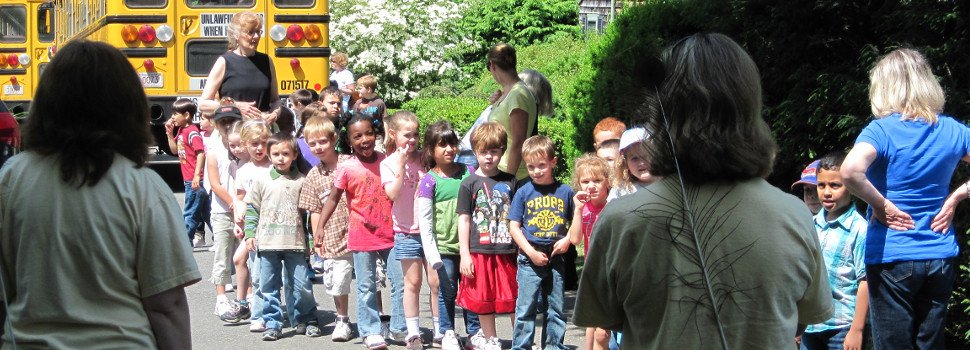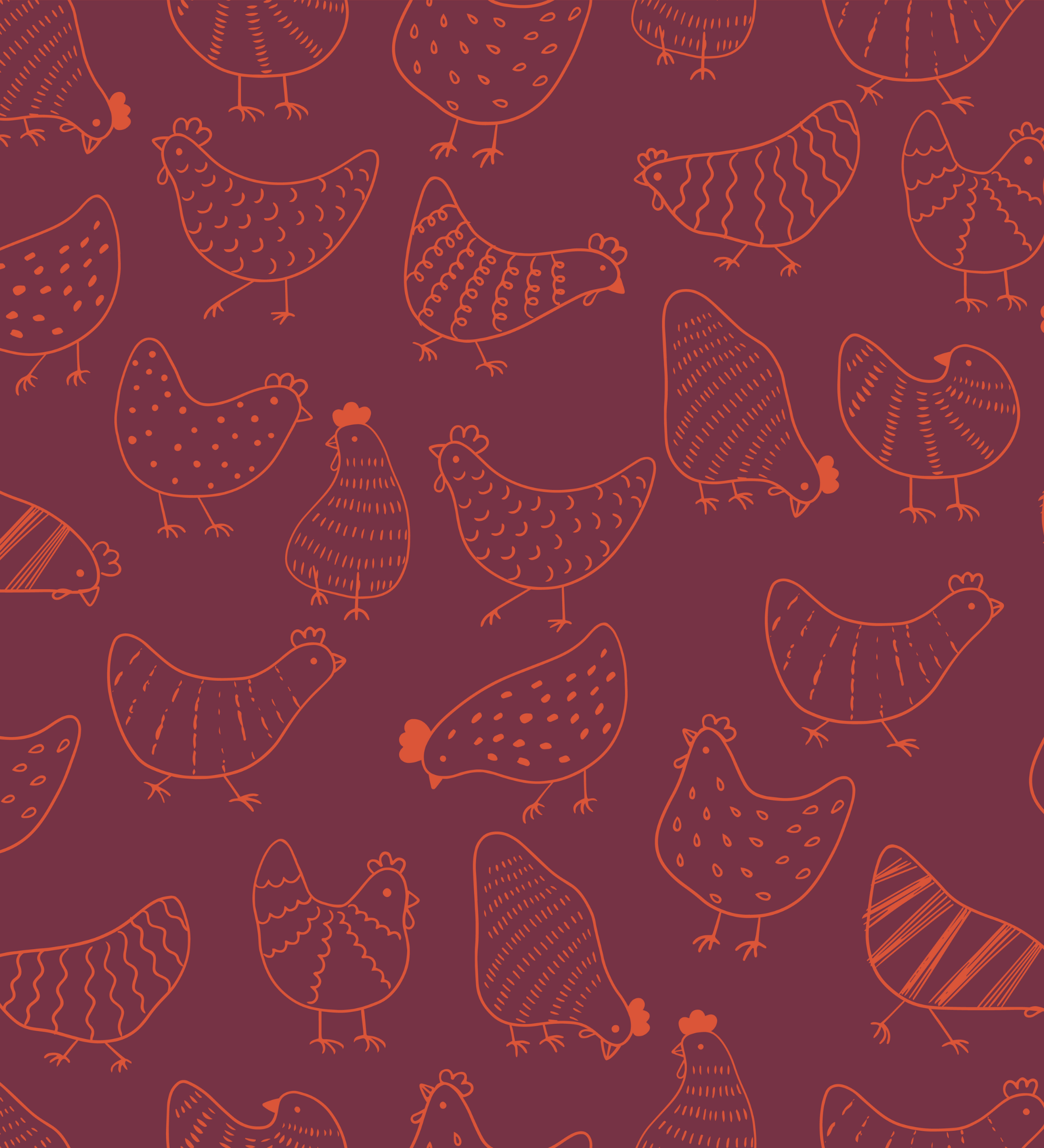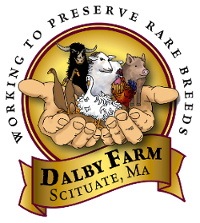
SCHOOL TOURS
Dalby Farm offers an interactive, educational,
and fun-filled adventure for your SCHOOL’s next field trip
Looking for a unique adventurous day trip for your classroom that is interested in animals or history? Visit Dalby Farm and take one of our Animal Tours. Knowing the most important aspect of any conservation effort is education, we expose our tour participants to our amazing rare breed animals and teach about their value in our world. Our material is tailored to fit any age group and teaches the preservation, conservation, and appreciation of plants and animals.
Farm tours are by appointment only
General SELF-GUIDED Animal Tour: 60-75 minutes
Our General Animal Tour is a self-guided tour where participants learn fun facts about plants and animals. General information about the various farm species that your group will visit on your tour, is included in an informational packet that each teacher will receive prior to coming to the farm. Teachers will have the chance to review and highlight the aspects of the tour that best suits their curriculum. Through this, both teachers and students will have some familiarity with the animals prior to visiting.
The day of the visit, we will have a more complete and detailed packet that will be distributed to the teachers. In it there will be information that corresponds to the different stops along the actual tour. In addition to the material that was received earlier, other interesting and fun facts are included that can be discussed along the way. Teachers will have the latitude to highlight and discuss the points that correspond with their specific curriculum throughout the tour. Children will have the opportunity to feed and interact with the animals along the tour as well. **Groups visiting during May and early June will also have the opportunity to meet our baby chicks. Prior to seeing them, a poster on the embryology of a chick is displayed for review, if desired.
Our goal is that each group will not only have fun and learn about animals and nature, but also will leave with a more complete understanding of the material. Seeing and interacting with the animals, we believe, creates more of a lasting impression which ultimately results with more in depth learning and retention of the material.
Each self-guided school group can customize their visit depending on age and interests as the curriculum provided allows the teacher to present the information they desire. The duration of the tour will vary depending on the age and size of the group, but generally last approximately 60-75 minutes. (Excluding picnic time and Egg Hunt, if your group opts for these add-ons).
Tours are offered Monday through Friday, May 1st through October 31st. Weekend requests may be available upon request.
-
$7.50 per person, or a minimum of $125.00*
$9.00 per person, or a minimum of $175.00 includes the use of snack/picnic area and additional visit time*
It is suggested that groups should have at least one chaperone per ten children.
SPECIAL RATES AVAILABLE for large groups upon request.
For large school, camp, or recreation groups, one FREE chaperone may attend for every 15 students in the group (once minimum rates have been met)
-
$75 non-refundable deposit due upon booking to guarantee tour date, balance due on day of tour. In case of cancellation due to inclement weather, and the visit is not rescheduled, the deposit will be returned. There is a $35.00 service fee for any returned checks.
Once paid, you have up to 72 hours before your private or semi-private visit to cancel/reschedule for a full refund before it becomes non-refundable. Your visit is not officially cancelled/rescheduled until we have acknowledged it via phone or email. You may only reschedule your visit once.
• Reservations are rain or shine (within reason). DRESS WARM! If there’s a lot of rain, the animals may not cooperate/want to be outside. We will discuss your rescheduling options with you should there be severe weather in the forecast.
• Wear boots/waterproof footwear if possible. In cases of a wet few days leading up to visits, there will be some puddles and mud around!
• Arrive on time. Depending on other scheduled bookings for the day, your tardiness could cut into the time allocated for your tour.
• Restrooms. Outhouse (port-a-potties) facilities are available on site.
• Snack/picnic area. Is available for usage for an additional charge (see Tour Pricing).
• Animal Interaction. Please do not feed the animals anything unless we have given you feed for them. Please do not stick hands into pens and cages. Please use common sense. It is important to remember that the majority of animals that live on Dalby Farm are endangered breeds. Treating them with respect and consideration is very important. Feeding the animals is strictly prohibited
We welcome you to visit our on-site Country Store at the end of your visit. Our Country Store is an integral part of the operational funding of our farm & animals so we encourage you to take a peek.
2-Day Life Cycles Enrichment Program (Only Available in the Spring)
Our 2-Day Lifecycles Enrichment Program is perfect for the classroom that is studying animal lifecycles and would benefit from connecting classroom teachings to actual animal interaction. This in-depth program is only offered in May and June. On day 1, children learn and then have fun making a curriculum-related craft, while in the classroom. Day 2 makes it all come together when everyone comes to the farm for a visit!
Day 1: Classroom Visit (45 minutes -1 Hour)
Two Dalby Farm-based educators will visit your school. We recommend that the educators visit each classroom individually.
One of the educators will read a book to children about the embryology of a chicken, introducing the concept in a narrative format. The educator will introduce the stages of the chicken’s life cycle through conversation and comments as they read the story.
Upon the story’s completion, the educator will ask the students a series of questions about the story reinforcing the concepts learned and encouraging discussion.
The second educator will have prepared materials for a ‘Hatching Chick Necklace’ craft.
With a good working knowledge of the material, the children will begin creating their necklaces. The project is themed with the lesson and is a nice way for the children to not only have fun while creating their own chick necklace but also is a good exercise on following verbal instruction through listening and seeing a ‘demo’ necklace. In addition, the use of fine motor skills is needed in order to complete this craft.
Day 2: Field Trip to Dalby Farm
(As described under General Animal Tours. The approximate length of the tour is 1 hr to 1 hour 20 minutes without a picnic, or 1 hour 45 minutes-2 hours with a picnic).
After your Day 1 in the classroom program, your group will be on to their visit to Dalby Farm!
Your Day 2 Field Trip will commence with a self-guided tour of the farm.
Your class will be divided into small groups. A maximum of approximately 30 children per tour group is optimal; with 3 groups can be accommodated per school visit for a total of 90 students. For schools that have more than 90 children in the grade level, it may be necessary to schedule multiple trips.
The school group educator will be given a farm packet of information they can use throughout the self-guided tour. During the tour of the farm, everyone will meet the various rare breed animals living on the farm.
One of the stops, during the self guided tour, is a presentation that will given in our multi-function room ‘The Coop’. During this, items either from or for the animals will be discussed. Children will have the opportunity to ask questions during the presentation. Upon completion, time will be allotted for the children to go up to the table and have ‘hands-on’ time so that they can feel the softness of a feather or compare the difference through touch and sight, between straw and hay, for example.
In addition, during the tour, each group will stop in to the rare chicken house where our baby chicks are living in a brooder. Before entering the building, a detailed poster depicting real-life pictures of the embryology of a chick can be reviewed. It is our goal that they will remember the cycle from our visit to the classroom and that they will be able to answer the different questions as they pertain to the embryology of the chick.
At the end of the tour, each group will meet and feed the goats and the sheep. If time allows, the children may have the opportunity to meet one of our hens ‘Ruby’ or ‘Stella’. The children will form a line and the Educator will introduce the hen to the children, they will have the opportunity to feel the softness of her feathers and pet her.
The group will either retreat to the farm’s entrance to board the school busses or if you prefer, remain at the farm for a picnic and/or ‘Spring Egg Hunt’.
-
(Based on A MAXIMUM classroom size of 30 children and limited to 3 classroom groups per day)
The first classroom group visit is $250.00; each additional classroom group visit is an additional $150.00.
If multiple farm visit days are needed to accommodate more than 3 classroom groups, the first classroom group for the second visit day will be $250, with each additional classroom group an additional $150.
An additional cost for the field trip to the farm is $7.50 per person without a picnic, or $9.00 per person with a picnic.
For every 15 children, you receive a FREE teacher or chaperone. Payment is expected the day of the visit.
Payment must be received before the start of the first classroom visit, unless prior arrangements are made.
-
In order to maximize learning, we suggest Day 1 - Classroom Visit of the Lifecycles Enrichment Program be scheduled at least 1 week prior to the Day 2 - Field Trip to the farm. During that time, we encourage teachers to talk about:
• What types of animals the children might expect to see at the farm for which we can provide information & direction.
• Reinforcement of Day 1 Classroom Visit learning content.
-
In May, Dalby Farm will be celebrating the ‘Spring Hatch Egg-stravaganza’. During that month, our General Animal Tour will include a stop to see and learn about our new chick arrivals! We will egg-splore the science of embryology from egg to chick, post-hatch care, and development of the chick. The actual hatching of the birds will not be part of this program.
FOR EVEN MORE EGG-CITEMENT….finish your visit by having your group partake in our SPRING EGG HUNT! Children have a ball locating and gathering the numerous plastic eggs filled with candy and spring novelties distributed in a designated area of the farm. A perfect way to end the day!
ADD The SPRING EGG HUNT* to your tour for an additional fee of:
Standard Egg Hunt (up to 25 children/96 eggs): $60.00
Jumbo Egg Hunt (up to 40 children/160 eggs): $80.00
Be sure to request an Egg Hunt when you reserve your date!
*Children will keep the contents of the plastic eggs, not the actual eggs themselves.

Educator Testimonial
Jeanne Crehan, M.Ed., Kindergarten Teacher, Jenkins Elementary School, Scituate, MA
Once again, Cheryl, thank you for hosting such a wonderful field trip for the kindergarten students at Jenkins Elementary. The students (and adults) enjoyed learning all about the rare breeds of animals that you have at your farm along with all of the information that you provide along the way regarding living/non-living things, recycling to help the earth, and even about the Roxbury puddingstone. Since our return from the field trip, the children have demonstrated an eagerness to learn more about farms and facts about farm animals. They have been reading books and sharing information with their peers, teachers, and family members.
Before our field trip to Dalby, it was helpful to have you visit the classroom to explain the life cycle of a chicken and to do a craft with the students. It was evident on our field trip, how the students had retained the information that you had shared with them.

